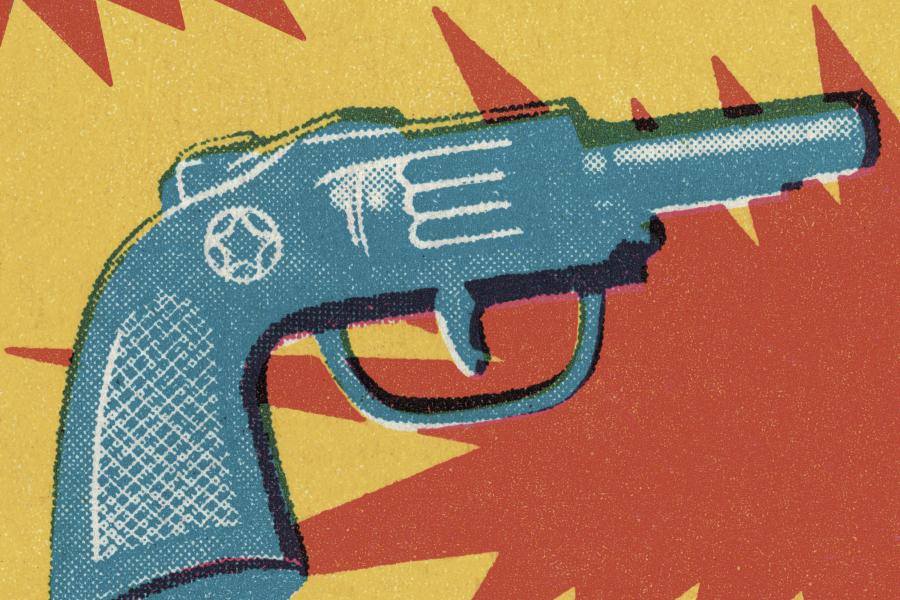Following gun violence tragedies, familiar myths get recycled and recirculated—myths that distract from effective solutions and create smoke screens around the essential problem: We're more interested in protecting sellers and buyers of guns than in protecting the public, says Daniel Webster, co-director of the Johns Hopkins Center for Gun Violence Solutions.
Below, read about some of the myths surrounding the issue of gun violence in America and what can be done to reduce it.
Myth: Urban homicides falsely inflate U.S. gun death statistics.
"The common trope is that places like Baltimore or Detroit or Chicago are the reason we have so many gun deaths in this country," said Cassandra Crifasi, the center's director of research and policy, in an interview with the Chicago Tribune. "And yes, those places … have unacceptable rates of gun homicides. But the places with the highest rates of death are not Maryland, Michigan, and Illinois. They are Mississippi, Louisiana, Wyoming, Missouri, and Alabama."
The fact is, Crifasi says, the places with weak gun laws have higher rates of death.
"More people died from guns in Texas than Illinois, when suicide and accidental shootings are included," she added.
Myth: Mass shootings like the ones in Uvalde, Texas, and Buffalo, New York, are the result of mental health issues.
While motives in the Uvalde massacre are still unknown, "increasingly, we are seeing people who are frustrated, angry, and hateful and using firearms take that out on a particular group," Crifasi told MarketWatch.
But there's a distinction between this and a diagnosable mental health issue. It's also dangerous and irresponsible to link gun violence and mental health, Crifasi warns. For one thing, mental health issues are far more common than mass shootings: More than 50% of people will be diagnosed with a mental illness or disorder at some point in their lives, according to the U.S. Centers for Disease Control and Prevention.
Fixating on motives and the mental health of those who perpetuate violence distracts from more actionable approaches to reducing gun violence, Crifasi said.
Myth: In most mass shootings, perpetrators do not know the people they kill.
Nearly 70% of mass shootings involve domestic violence, Lisa Geller, MPH, state affairs advisor for the Center, told 12 News in Arizona.
In a study published in 2021, Geller and colleagues found that in over 68% of mass shootings, the perpetrator killed at least one partner or family member and had a history of domestic violence.
The truth is, restricting access to guns by people with a history of domestic violence could curb the occurrence of mass shootings and fatalities, the study suggested.
Myth: There are more gun deaths in the U.S. because America is a violent society.
The truth is, "most countries don't have a problem with fatal mass shootings," Webster told Fox News in LA. "Most countries do not have anywhere close to the rates of homicides that we do. It's driven principally … because we have decided to make guns readily available to almost anyone, and our interests seem to be more in protecting those who sell weapons and want to own them as opposed to the broader public."
Myth: We don't know what to do to curb gun violence.
The fact is, data collected by researchers about mass shootings show discernible patterns and opportunities for intervention. The data also suggest that many of the ways we're currently trying to prevent gun violence are wrong—but the good news is that we now have evidence-backed solutions to do better.
Myth: More guns in more places will make us safer.
"If firearms everywhere made us safer … we would be the safest place in the world," Crifasi said in an episode of the Public Health On Call podcast.
"We have more guns than people in this country, yet we are the only country that continues to experience exceptionally high rates of firearm homicide and fatal mass shootings occurring with regularity," she continued.
A version of this article originally appeared on the Bloomberg School of Public Health website.
Posted in Health, Politics+Society











